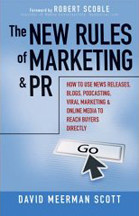What would you do with 22,000 pounds of nuts? That's what CBS executives might have to ask themselves if even half of the Jericho fans who have already signed an online petition make good on a grassroots effort that calls for viewers to send in “nuts.”
According to some fans, sending nuts is the best response to the show’s cancellation because it originates with character Jake Green (Skeet Ulrich) borrowing the historic phrase in response to a final offer of surrender from a hostile neighboring town. Of course, the response, “nuts,” is tied to General Anthony C. McAuliffe’s answer to a German demand for surrender in World War II.
According to various accounts, when McAuliffe was told of the German demand for surrender he said "Aw, nuts". At a loss for an official reply, Lt. Col. Kinnard suggested that his first remark summed the situation up well, which was agreed to by the others. The official reply: "To the German Commander, NUTS!, The American Commander" was typed and delivered by Colonel Harper to the German delegation. Harper had to explain the meaning of the word to the Germans.
Some fans say they feel the same way, cut off by CBS because they blame the company’s executives for the show’s lackluster ratings. As pointed out by Showbuzz , many viewers abandoned the show only after it went on a long midseason hiatus, much like "Lost" on ABC and "Heroes" on NBC.
This is not the first time CBS has garnered negative reactions related to the show. Fans were upset when CBS did not deliver on its promise to fully produce side stories online and when it removed a fan-generated Wikipedia entry to retain control over what details they wanted fans to remember. Now, some fans have accused CBS of deleting posts in the CBS-hosted Jericho forum.
Since, discussions of the show’s cancellation have spilled onto the main CBS discussion area, which is dominated by fan complaints and pleas at various times. Not to be outdone, fans of other shows on CBS, which were also cancelled, are following suit, creating an interesting statement about social media.
With growing fervor, networks are hearing louder and louder protests over show cancellations that would have barely received mention 20 years ago. Now, due to increased consumer buy-in with rich online content, forums, and deleted scenes, broadcasters might find it more difficult to make decisions without consumer consent. In sum, fans become more vested than ever.
Public outcry is also linked to the knowledge that some shows can be saved. One of the most famous cases was Seth MacFarlane’s Family Guy. FOX reversed its cancellation after Cartoon Network reruns revived interest and consumers bought 2.2 million DVDs. Of course, it’s always easier to revive a show with animated characters than a large ensemble cast like Jericho. Nuts.

According to some fans, sending nuts is the best response to the show’s cancellation because it originates with character Jake Green (Skeet Ulrich) borrowing the historic phrase in response to a final offer of surrender from a hostile neighboring town. Of course, the response, “nuts,” is tied to General Anthony C. McAuliffe’s answer to a German demand for surrender in World War II.
According to various accounts, when McAuliffe was told of the German demand for surrender he said "Aw, nuts". At a loss for an official reply, Lt. Col. Kinnard suggested that his first remark summed the situation up well, which was agreed to by the others. The official reply: "To the German Commander, NUTS!, The American Commander" was typed and delivered by Colonel Harper to the German delegation. Harper had to explain the meaning of the word to the Germans.
Some fans say they feel the same way, cut off by CBS because they blame the company’s executives for the show’s lackluster ratings. As pointed out by Showbuzz , many viewers abandoned the show only after it went on a long midseason hiatus, much like "Lost" on ABC and "Heroes" on NBC.
This is not the first time CBS has garnered negative reactions related to the show. Fans were upset when CBS did not deliver on its promise to fully produce side stories online and when it removed a fan-generated Wikipedia entry to retain control over what details they wanted fans to remember. Now, some fans have accused CBS of deleting posts in the CBS-hosted Jericho forum.
Since, discussions of the show’s cancellation have spilled onto the main CBS discussion area, which is dominated by fan complaints and pleas at various times. Not to be outdone, fans of other shows on CBS, which were also cancelled, are following suit, creating an interesting statement about social media.
With growing fervor, networks are hearing louder and louder protests over show cancellations that would have barely received mention 20 years ago. Now, due to increased consumer buy-in with rich online content, forums, and deleted scenes, broadcasters might find it more difficult to make decisions without consumer consent. In sum, fans become more vested than ever.
Public outcry is also linked to the knowledge that some shows can be saved. One of the most famous cases was Seth MacFarlane’s Family Guy. FOX reversed its cancellation after Cartoon Network reruns revived interest and consumers bought 2.2 million DVDs. Of course, it’s always easier to revive a show with animated characters than a large ensemble cast like Jericho. Nuts.


















